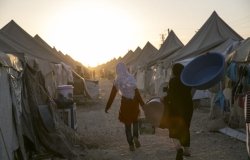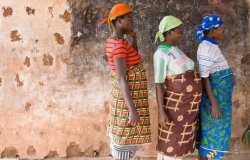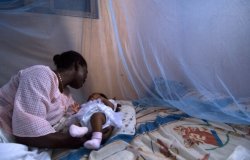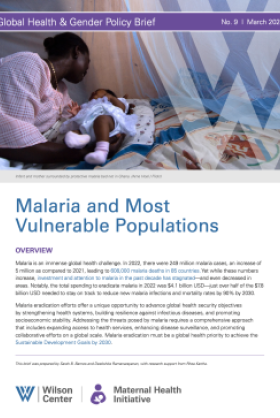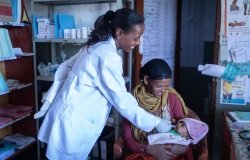New Rapid Test for Drug-Resistant TB Made Available in Developing Countries
July 2008 – Coalition of health organizations introduces initiative to distribute new multi-drug-resistant TB tests.
WHO, the Stop TB Partnership, UNITAID and the Foundation for Innovative New Diagnostics (FIND) have partnered in financing and delivering a new rapid response test to diagnose multiple-drug-resistant tuberculosis (MDR-TB) in low-resource countries. "MDR-TB is a form of TB that responds poorly to standard treatment because of resistance to the first-line drugs isoniazid and rifampicin," the WHO reports. In most developing countries this strain of TB is not tested for until after first-line drugs have failed to improve a patient's condition. Furthermore, under current methods, accurate diagnosis can take up to three months.
$26.1 million of initial funding from UNITAID will allow "line probe assays", which produce results within two days, to be introduced into sixteen countries over the next four years. With the dramatic decline in diagnosis time and increased funding for laboratory improvements, proper diagnosis and treatment of MDR-TB cases is expected to rise from two percent today to 15 percent or more in four years. Stop TB director, Dr. Mario Raviglione, described the new test as "revolutionary" saying, "It changes completely the way we will be dealing with MRB-TB."
Click here for more information on the initiative.
Related Links
Related Program

Maternal Health Initiative
Life and health are the most basic human rights, yet disparities between and within countries continue to grow. No single solution or institution can address the variety of health concerns the world faces. By leveraging, building on, and coordinating the Wilson Center’s strong regional and cross-cutting programming, the Maternal Health Initiative (MHI) promotes dialogue and understanding among practitioners, scholars, community leaders, and policymakers. Read more
